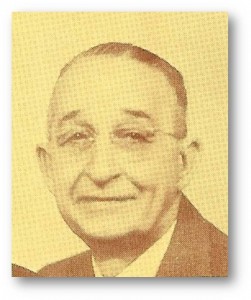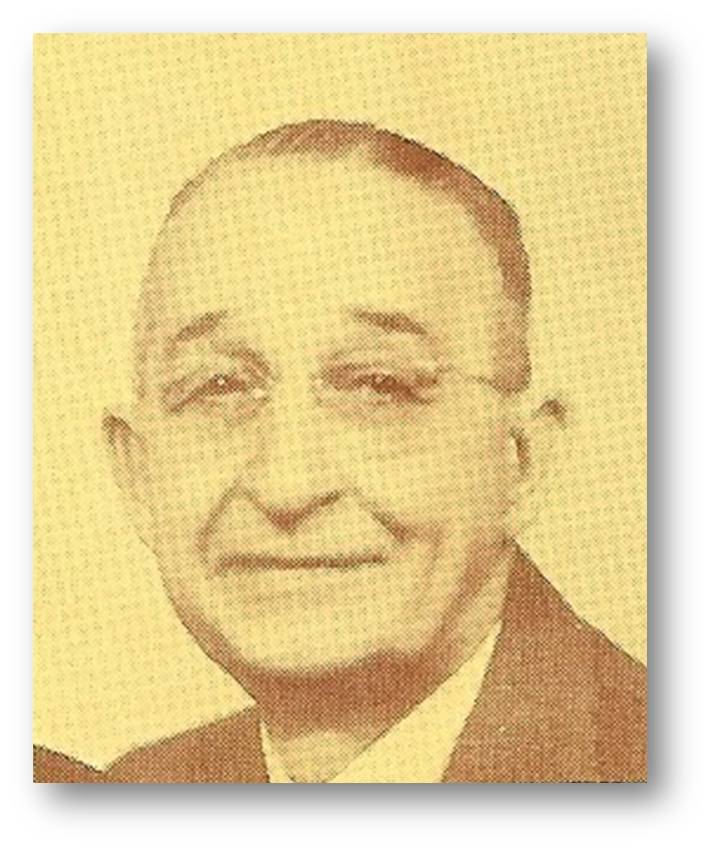The great, late, speaker of the House of Representatives, “Tip” O’Neil from Massachusetts once made this insightful remark, he said, “All politics is ultimately local.” I agreed with him when he said it, and I still agree with him today.
With that said allow me to humbly paraphrase the great “Tip.” According to TVB “All funeral service is ultimately local.”
In times such as these, when everything seems to be changing, and change has been the constant companion of funeral service for a mighty long time, in times such as these I find it helpful to sit back and remind myself of a couple of glaring and in the end comforting truths about our great and beloved profession. Here are a couple of truths, as I see them anyway:
- The average funeral home in this country is not large, it is not owned by large companies, and it is located in relatively small communities. I believe that small communities still are more numerous than large metropolitan areas.
- The success in funeral service is still relationship based. In other words the more relationships which are created through pre-need, at-need and after care translates into future security and success for funeral homes – regardless of who owns them.
- Nothing happens until a relationship is created.
This is not Pollyanna stuff, nor is my list of funeral home strengths a feel good expression of pleasantries and platitudes, because even in view of these three mighty important strengths, things have changed. The buying habits of people have clearly changed, and if we as a profession continue to be addicted to using outdated financial models that worked very well in 1968, and persist in using these outdated and obsolete models in 2010 – well it doesn’t take a scientist to conclude what will happen.
There are many more sages and wise people in the funeral profession than I that can address the changing habits of the public, and what these continuing changes mean to our success. I will leave that analysis to people who are much more insightful and skilled than I am.
My list of funeral home strengths might be indeed short, but the length of the list ought not be confused with the truth that these strengths (and there are many more that I have certainly missed) are in reality a powerhouse of influence, a powerhouse of mission, a powerhouse of stability, a powerhouse of compassion, care, and comfort.
Local funeral homes are I believe potential and real powerhouses. In fact given that the death rate is 100% and the resulting misery that this glaring mortality fact creates in every community, the local funeral home truly emerges as a powerhouse of influence, or anyway a potential powerhouse of influence. The difference as to whether a funeral home is a powerhouse or not is always predicated on the attitude and what is in a funeral directors heart.
I grew up in Southwestern Iowa. It was somewhat of an isolated existence. Omaha was 35 miles away and that gave us some contact with another way of life, but the truth was that in the 1950’s my little town was a wonderful place, but it was also in a type of time warp, which looking back was NOT a bad thing.

Key to our little town’s mental health as a community was the presence and involvement our two beloved and eccentric undertakers – the Blust Brothers (Henry the older, and Norbert (nicknamed Nob) the younger). The Blust Brothers were absolutely a living truth concerning the reality that in the end all funeral service is local. In fact the Blust Brothers were what I call today funeral directors powerhouses, and here is the beauty of the Blust Brothers they didn’t even know it, which was part of their charm and success. These two men just loved being undertakers.
Today I marvel at the beautiful opulent magnificent funeral homes that are built. They seem to be getting nicer and more opulent each year. I knew as a young undertaker that in most towns the funeral home was indeed the most beautiful building in town. In the big cities this was not always the case. However in small town Iowa this aesthetic reality was a social more. Funeral homes in small towns were almost universally located in the most impressive homes in the community, and the Blust Brothers facility was no different. Outside the building was simply stunning, but this was not the case inside.
Not one piece of furniture matched in the Blust Bros. Funeral Home. Nothing matched. Pictures were hung either too high or too low. The furniture had cigarette burns in the fabric, because one of the Blust brothers was a chain smoker, and carpet was really tired (which was interesting given the fact that the Blust Brothers also operated the town’s only furniture store, which sold carpet), the rooms were dingy and dark, the wall paper ancient, the curtains were drab and heavy, and there was a water stained colored portrait of Jesus hung over the area where they placed the casket.
Then on top of all this were the eccentric Blust Brothers themselves. Their father, a chap named Ferdinand Blust, had opened the funeral home in 1871, two years after the town was founded, and his two sons Henry and Norbert took over the business at the turn of the century. Henry Blust was licensed in 1900 and his brother Norbert was licensed in 1908. They were still doing funerals in 1955. The Blust brothers were not perfect, they were not polished, they were not sophisticated, they were not cool, they were not socially adept, but they were local and very visible, and what is most important is the fact, and a fact it is, we liked them. For all their warts and faults the community liked these two eccentric brothers. They were both popular. They built relationships. They participated in the life of our community, and we liked them
Their eccentricities were legend. For instance no dead person entrusted to the Blust Brothers care would or could be laid out wearing eye glasses. The dead person’s eye glasses were placed carefully in the dead person’s hands. Nob Blust was firm on his no eye glass funeral conviction when he would declare “Dead people can’t see!” so thus ended the lesson, Nob hath spoken, and no one in town ever argued with Nob’s eye glass theory and logic. Everybody in town agreed, dead people can’t see, Nob is right.
The other difficulty, looking back, with the Blust Brother’s was the fact that both of them were almost stone deaf and they stubbornly refused to get hearing aids. So friends just let you imaginations go concerning how smoothly one of the Blust Brother’s funerals went. The brother’s made mistakes constantly simply because they could not hear and hence communications usually fell apart and became shambles. But that little human frailty didn’t make much difference to us folk in town, because remember we liked them, and hence we found it easy to forgive and forget the Blust Brother’s snafu’s on funerals. No matter what the Blust Brother’s both had good hearts. They like us, and we liked them.
I remember very well one funeral where Henry was in front of the living room where the funeral was set up, and he had run out of memorial folders. Nob was in the back of the living room and Henry shouted from the front in the presence of everybody “Nob I’ve run out of cards.” Nob replied “I’ll take care of it.” In about a minute Nob marched forward carrying a folding chair for his brother. Henry got annoyed, he did not need a folding chair he needed memorial folders, and dressed his brother down in front of everybody. Of course Nob could not hear one word that his brother was saying to him and off he went attending to other funeral duties. That kind of stuff happened all the time on a Blust Brother’s funeral. However I also well remember when this minor funeral infraction happened my grandmother leaned over to me and said “Todd, Nob means well.” Remember friends we liked the Blust Brothers.
In the age of high technology, high tech communication, high tech impersonal people, high tech greed, high tech fast lane living, high tech, high tech and then more high tech, is the thought that all funeral service is in the end local an old-fashioned, antiquated, terribly boorish concept? I believe that some good people will say that the good ole’ days of relationship building, the good ole’ days that all funeral service is ultimately local, and the good ole’ days that being well liked is essentially important are truly and indeed over with – they are days gone by, they are ancient history and never to be seen again. They might have a point, and of course the Blust Brothers have been dead for many years, but interestingly the funeral professionals who are the legacy of the Blust Brothers are also highly visible in the community, and people still like them. I wonder who they learned that idea about life and service from.
As I write these words I feel a tug in my mind that I am so out of step with what is going on. However I am equally tugged by the memory of what I learned made the Blust Brother’s so well liked in our little town, and we like them NOT because the Blust Brothers sat around in the coffee lounge waiting for the phone to ring. Those two old deaf eccentric men were out in the community, they participated in the life of the community, they were there with a mission in life to help people, and they earned every dime they made, and they possessed good hearts. They paid the price for their success because they gave of themselves relationally to our little town. Something to think about, is it not?
Oh, the last thought on the beloved Blust Brothers – they operated not only the furniture store, but the ambulance service as well. Now there is a scary thought of which I will have more to say about in a future writing.
All funeral service is local – what do you think? Anyway that is one old undertaker’s opinion.
TVB

Leave a Reply